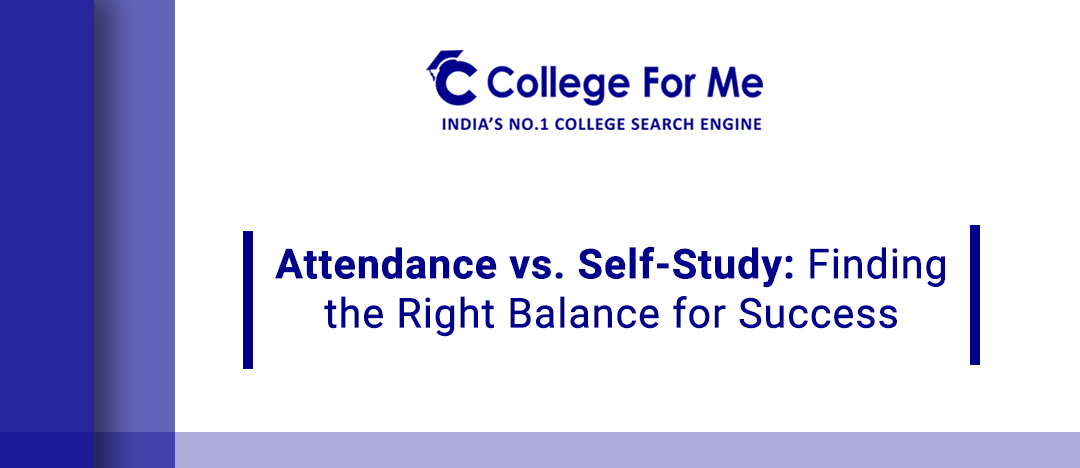Career Scopes Of A B.Tech. Student
There is a high demand for B.Tech. degree holders in the private sector, yet, there is also the opti...

As college and university students, we face a constant challenge in managing our time effectively. One crucial aspect to consider is the balance between attending classes and engaging in self-study. While attending classes provides structure and direct interaction with instructors, self-study allows for flexibility and personalized learning. Finding the right balance between these two approaches is key to achieving academic success. In this blog, we will explore the benefits of attendance and self-study, and discuss strategies for striking the right balance.
The Importance of Attendance:
Attending classes offers numerous advantages that contribute to academic success:
The Benefits of Self-Study:
Self-study is equally important for academic success. It allows for individualized learning experiences and the development of essential skills:
Finding the Right Balance:
Striking a balance between attendance and self-study is crucial to optimize your learning experience:
Attendance and self-study are both valuable components of a successful college or university experience. Attending classes provides structure, interaction, and access to valuable resources, while self-study promotes independence, flexibility, and mastery of subject matter. By finding the right balance between attendance and self-study, you can optimize your learning, achieve academic success, and develop lifelong skills that will benefit you beyond the classroom. Remember, it is the synergy between these two approaches that will propel you toward your educational goals.

There is a high demand for B.Tech. degree holders in the private sector, yet, there is also the opti...

If you are looking for a bright and prospective career, then getting a B.Tech. in CSE must be under ...
Comments (0)